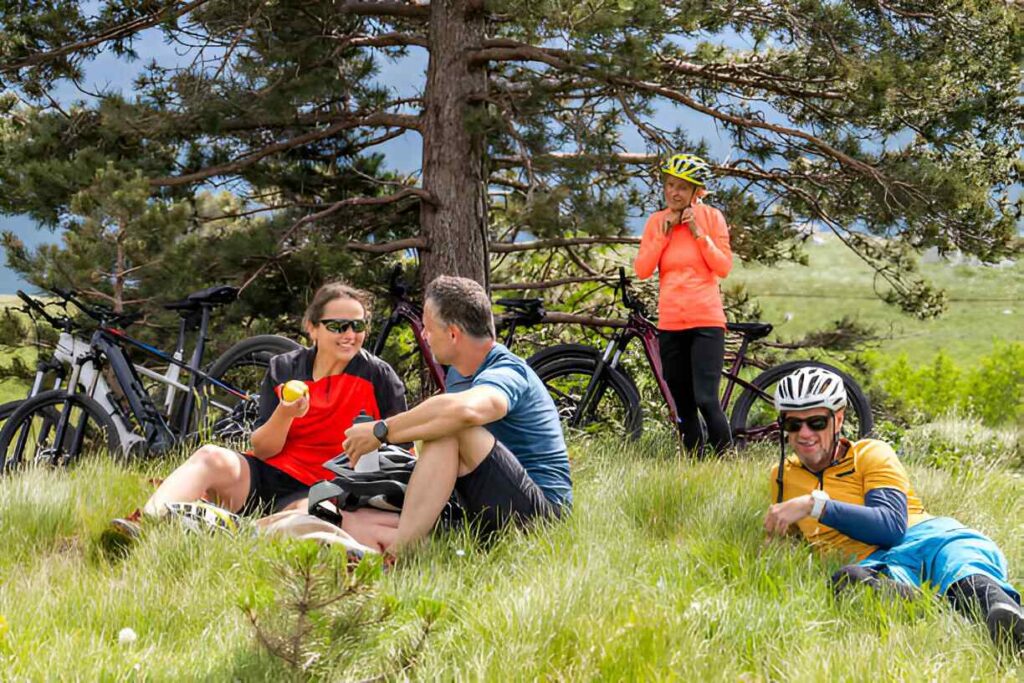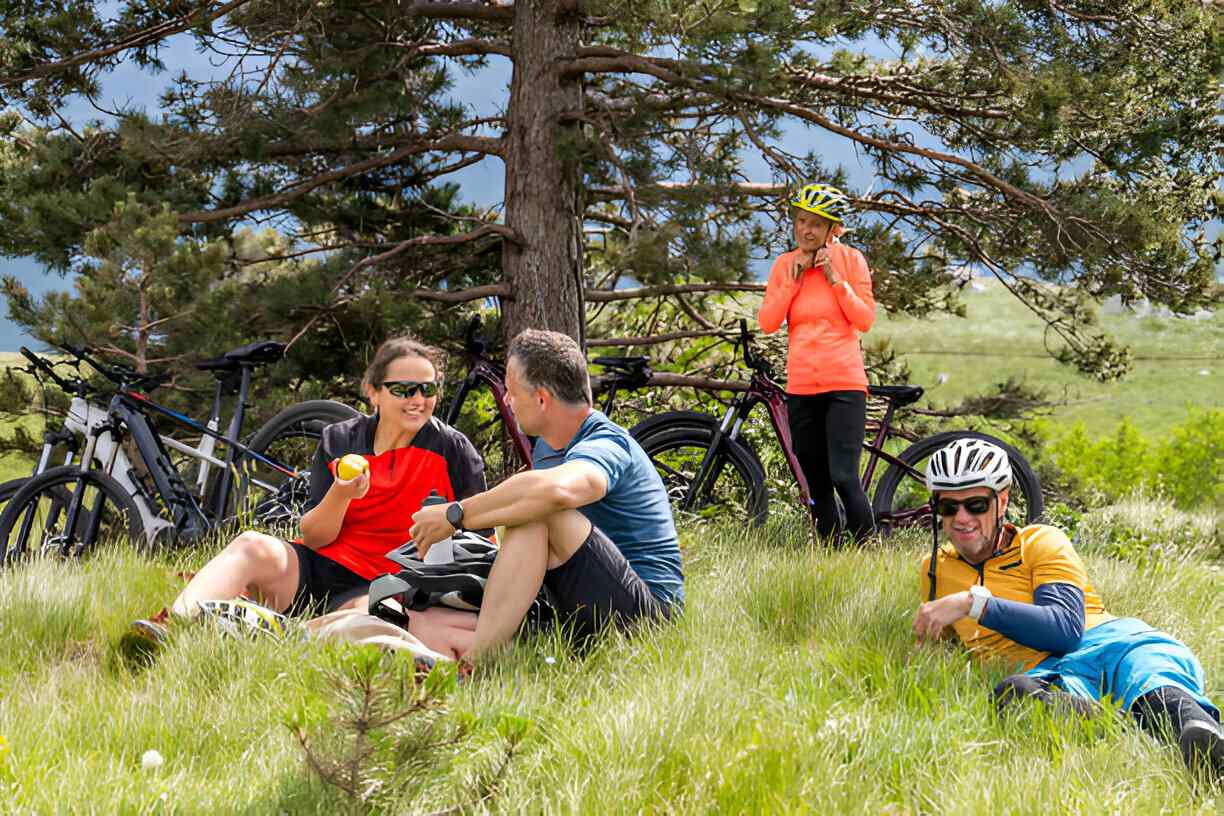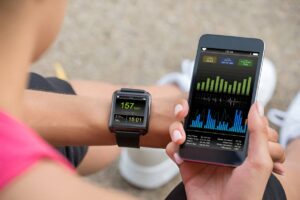Mountain biking nutrition deals with a high degree of specialization in the quest to outline some very unique dietary requirements encountered while mountain biking. Mountain bikers may come across vast terrains that include very suggestive and strong physical demands during their rides. In contrast, road biking is done on far more consistent and smoother paths and requires short bursts of energy for uphill climbs and technical maneuvers. This calls for special attention in refueling the body with effective stamina and energy needed for a mountain biker to complete the route. Thus, mountain bikers should be able to eat the right amount of carbohydrate, protein, and fat for them to ensure performance and recovery.
Together, it is what mountain bikers eat before, during, and after one’s ride that calls for an immense difference in their endurance and agility. Pre-ride meals should be consumed 2-3 hours prior to the ride, heavy on complex carbohydrates mixed with protein—oatmeal with nuts or a banana with peanut butter. This allows for a slow release of energy, in turn letting the rider sustain themselves through rigorous trails.
Quick sources of energy are called for during the ride in the form of energy gels or electrolyte drinks, or even fruit snacks to keep glycogen stores at a premium. Equally importantly, one should keep themselves well-hydrated by drinking water or an electrolyte solution at regular intervals. This prevents the onset of dehydration, which causes muscle cramping in mountain bikers.
Further on mountain biking nutrition, defined below are hydration strategies, a list of foods to take to optimize performance, and recovery nutrition tips. The information will aid mountain bikers in customising their meal plans, informed by the intensity and duration of the ride, to potentiate the biking experience. It will provide insights from expert mountain bikers about what they pack up in their nutritional kits, real-life anecdotes, and the science behind macronutrients and micronutrients. This part of the article caters to the absolute amateur who wants only some general advice, and the more seasoned riders looking for advanced strategies on how better nutrition can help fine-tune high-performance riding.
- A balanced diet is important for peak mountain biking performance. A good mountain bike diet focuses on carbohydrates, proteins, and healthy fats. Be sure to hydrate well by drinking plenty of water, but consider an electrolyte drink on long rides to keep from going into a dehydrated and cramping state. Pre-ride meals must include complex carbohydrates like oatmeal, whole-grain bread, or quinoa, which will slowly release energy. Do avoid heavy, greasy foods just before the ride because they will ease you into gastrointestinal distress and fatigue.
- Bring energizing snacks with you in the form of energy bars, a banana, or trail mix to refuel during the ride and be full of energy. Keeping energy levels up is just as important post-ride for recovery—hit a mix of protein and carbohydrates to restore glycogen stores and repair muscles. While many sports-oriented supplements exist today, one is better off getting his or her fuel from natural sources such as fruits, nuts, and lean proteins—that is if health and energy stability are expected.
- Experiment with different foods while training to find out what agrees best with the body, rather than consuming a wide variety of different foods on race day.

Popular Terms Relating to Mountain Biking Nutrition
Carbohydrates: The chief source of energy; Proteins: Needed in repairing and rebuilding muscle tissue; Fats: The secondary source of energy and enable the absorption of fat-soluble vitamins; Hydration: Fluid balance maintained to prevent dehydration; Electrolytes: Minerals like sodium and potassium that help perform nerve functions and muscle contraction; Glycogen: A stored form of carbohydrate in the muscles and liver used when one has aggressive mountain bike rides.
Background Information on Mountain Biking Nutrition
Mountain biking nutrition is, therefore, a delicate balance between macronutrient intake—carbohydrates, proteins, and fats—with sufficient hydration and good electrolyte levels for maximum performance and recovery. Unlike casual cycling, mountain biking, therefore, demands powerful, short sprints and almost instantaneous recovery periods that are junctions into endurance; thus, proper nutrition assumes center stage in this extreme sport. Proper nutrition will facilitate sustained energy while climbing, quick recovery during descents, and strength and resilience throughout the ride.
Historical Landmarks in Mountain Biking Trails
Mountain biking trails often wind their way through terrains steeped in history, and riders are given not only a physical challenge but also a ride through time. Woven deep into the thick forests of the Appalachian Mountains, one would be recognized with the remnants of historic Native American trade routes. These paths, trodden long ago by peoples trading goods and stories, now turn into thrilling single-track adventures for mountain bikers. Meanwhile, harsh landscapes of the Rocky Mountains hold evidence in ancient mining trails of the Gold Rush era—prospectors who drove themselves crazy to strike gold hacked their way into pathways. These repurposed trails hold a hint of human effort and tenacity.
Flora and Fauna Along Iconic Trails
Mountain biking trails often take one through tapestries of flora and fauna unique to their respective ecosystems. In the Pacific Northwest, riders gaze upon ancient, towering conifers that have witnessed countless centuries of change. Under these giants falls a full tapestry—ferns, mosses, and even wildflowers that form a lush green carpet. Sightings are common where a flash of red will reveal a curious fox, and the call of a distant owl provides an audio layer to the experience. This could be paired out in arid Southwest trails with waving cacti and succulents outlining the surroundings; darting lizards or soaring hawks will definitely cross your way.
Technological Advancements in Mountain Biking Equipment
The advancement of mountain biking equipment has revolutionized this sport both in terms of safety and performance. One cannot help but acknowledge that mountain bikes have become engineering marvels in the modern-day world, reassured by the usage of lightweight yet resilient materials such as carbon fiber and aluminum alloys. Suspension systems are now very complex, with adjustable settings by the rider for varied terrains that make the bike highly responsive. Besides suspension, the technology applied in tires has been advanced with tubeless options that decrease the potential for punctures while increasing traction. The gear shifting mechanisms have also improved greatly to become more precise and resilient, thus providing a smooth ride over varied landscapes.
The Psychology of Mountain Biking
Mountain biking is not only physically demanding but also encompasses much in the way of benefits psychologically towards one’s wellness. Engaging in this vigorous sport requires an extremely high level of concentration and decision-making, therefore enhancing cognitive sharpness and mental acuity. One feels accomplished after managing to negotiate difficult trails; thus, self-esteem is enhanced. Also, settings natural to mountain biking are calming in a way, reducing stress and increasing the mental clarity of a rider. The rhythmic pedaling and the freshness of mountain air can allow a meditative state to be reached, in which riders may be able to shut themselves off from the stresses of everyday life and acquire mental serenity.
The Role of Community in Mountain Biking
Mountain biking offers an incorporated sense of community among its enthusiasts by building networks of support and camaraderie. Local clubs and, more recently, online forums provide a means for riders to share experiences, tips, and trail recommendations. Group rides are common; often senior bikers lead less experienced riders acting as mentors and allowing people to develop their biking skills. Events such as racing and bike festivals bond the community even closer by bringing all sorts of people out of their cocoons in the name of the sport. This is building a sense of belonging and mutual encouragement toward the promotion of a healthy active lifestyle and, with that, nurtures everlasting bonds of friendship within the mountain biking community.

What are some of the best foods to eat before riding a mountain bike?
You want complex carbohydrates for maximum accomplishment when partaking in mountain biking. Some of the best ones to try are whole-grain starches, oatmeal, and whole wheat pasta, as these would give a slow, steady release of energy over the duration of your ride. Add in a lean protein source such as eggs or chicken to help with recovery and stamina building.
Also, it’s good to keep yourself well-hydrated – drink water or a drink with electrolytes before you begin your ride. Just avoid heavy and oily foods, since these will make digestion quite a challenge on your ride. Adding some fruits like bananas or berries for natural sugars makes for a perfect quick energy boost as well.
How important is proper hydration during mountain biking?
Proper hydration in mountain biking builds up your level of endurance and performance. On the other hand, dehydration may provoke occasional muscle cramps, dizziness, or reduced cognitive function, which could spell danger across challenging routes. Be sure to begin hydrating well before you hit the trails and continue to sip water throughout your ride.
In addition to water, include sports drinks with electrolytes in your list of need-to-haves when you have a particularly long ride. Replenishment drinks will help rehydrate the vital lost salts, sweated out, for the efficient functioning of your muscles and significantly reducing fatigue. Always take more than you feel you will need to ensure that you do not run short out in the boonies.
What should I eat during a mountain biking session?
This should be accompanied by easily digestible carbohydrates to keep the energy level during the ride. They include energy bars, gels, and fruits like bananas and apples. They are very convenient since they provide an immediate glucose supply, which is utilized by the muscles directly.
Add small amounts of protein in the form of nuts or cheese to repair your muscles and help keep you full on longer rides. Eating small amounts every 30 to 60 minutes keeps your stamina and prevents a big energy crash, so that through the ride, you’ll be able to go at your best.
Are there special foods to aid recovery after mountain biking?
Recovery foods should be based on replenishing stores of glycogen and repairing muscle tissue. A balanced meal with carbohydrates and protein, consumed within 30 minutes to an hour after your ride, is considered optimal. Options like chicken and vegetable stir-fry with brown rice or a smoothie with fruit and yogurt and an addition of protein powder can help get you started.
You can also add some anti-inflammatory foods into your diet that include berries, nuts, and leafy greens to help in the reduction of muscle soreness and speeding up recovery. You should also not forget hydrating after the ride. Water or recovery drink with electrolytes will make it easier to recover from the muscle breakdown and rehydrate faster.
How do I prevent muscle cramps while mountain biking?
Most of the time, muscle cramps are due to either dehydration or an electrolyte imbalance. Being well-hydrated before, during, and after your ride is very important. You can prevent cramps by drinking liquids containing the electrolytes necessary for muscle functions, such as sodium, potassium, and magnesium.
You can also increase your intake of foods that contain these minerals. Good sources of potassium include bananas, sweet potatoes, and avocados. Magnesium-rich foods include leafy greens and nuts. Stretching regularly and having proper nutrition can also reduce the likelihood of muscle cramps.
Is it safe to drink caffeine before mountain biking?
Caffeine can also prove to be an excellent stimulant to enhance alertness and endurance. A drink half an hour or so before a mountain biking session and one will feel more alert and energized. A moderate amount of caffeine—like a cup of coffee or tea, about 30 minutes to an hour before the ride—will work wonders.
However, one should nonetheless be mindful of their individual caffeine tolerance. Too much caffeine might cause shakiness, an racing heartbeat, or gastrointestinal distress. Having caffeine with enough water and a healthy meal might help gain its benefits without enduring a negative aftereffect.
What could be some drawbacks of a heavy meal prior to a ride?
Eating heavy before mountain biking may be Roberts’s unwitting cause of digestive discomfort and sluggishness. Heavy foods take longer to digest and can cause bloating and nausea, even cramping, all of which will strongly impinge on your performance and experience out on the trails.
Sticking to lighter portions of balanced meals that include carbohydrates, lean protein, and small portions of fat is the best. This will help ensure that your body has effectively utilized all the energy and other nutrients for the ride without feeling heavier.
Will there be a need for supplements for mountain biking?
While most of your nutrition should come from whole foods, a few supplements can be beneficial for mountain bikers—especially athletic riders who want to ensure they are getting an adequate intake of energy and recovery. Common supplements include electrolytes to be better hydrated and protein powders for recovery and muscle repair.
However, this does not dismiss the use of other nutritional supplements that still can have a place in general health and performance, such as omega-3 fatty acids, magnesium, and multivitamins. Always talk to a healthcare professional before starting to take any new supplement to make sure it is right for you and your needs/condition.
How often should I eat during a long mountain bike ride?
While out mountain biking, remember to eat in portions during a prolonged ride to keep that energy up. Customarily, have something snack-like that is heavily carbohydrate-rich about every 30 or 60 minutes. They can be energy bars, gels, dried fruits, or perhaps sugar sandwiches.
Eating regularly will prevent the rapid drop in blood sugar level, therefore sustaining the energy and concentration. Intake of carbohydrates with small amounts of protein and healthy fat will also sustain the release of energy and maintain the muscles during the ride.
What is the role of electrolytes during mountain biking?
Electrolytes, especially sodium, potassium, calcium, and magnesium, take charge of muscle functions and the balance of body fluid. If you go through a demanding mountain biking workout, you could experience the loss of these vital minerals from your body via your sweat. Since this is the case, replacing them is of the essence in preventing c, fatigue, and dehydration.
You can further rehydrate with water that has added electrolytes or use sports drinks that contain these replenishing minerals during the ride. Additionally, foods that naturally contain a good amount of electrolytes—such as bananas, nuts, and leafy greens—can help maintain the balance if you include them in your diet plan.
Conclusion
Correct nutrition can make or break mountain biking performance and recovery. Complex carbohydrates, lean protein, and healthy fats will feed your ride if consumed in a balanced meal a few hours prior to riding. Proper hydration begins way before the ride, with regular sips from water bottles or electrolyte drinks throughout.
This will be easily digested carbohydrates while bicycling, commonly in the form of energy gels, bars, and fruits like bananas. Equally important is food post-cycling: a meal rich in protein and carbohydrate, within 30-60 minutes, to replenish the storage of glycogen for fueling your ride and sustaining muscle recovery. Addition of anti-inflammatory food like berries or omega-3-rich foods will help in recovery.
A personalized approach to mountain biking nutrition helps you meet your unique energy demands and dietary preferences for prime performance on the trails, just to have a much more enjoyable biking experience. Vigil on what you eat and drink before, during, and after your ride can really make all the difference in your mountain biking escapades.








